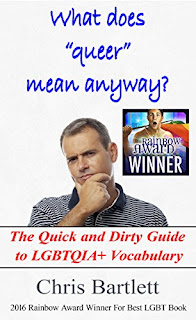Genre: Non-Fiction/Politics
Description:
“Hillary Clinton-Donald Trump, Trump-Biden (Part 1&2), the demand
by niinenteen Democrats Representatives and one Senator for Biden's withdrawal
as Democrats' presumptive nominee for the November5, 2024 presidential
election, Rishi Sunak- Keir Starmer, Jacob Zuma-Cyril Ramaphosa (Part 1&2),
Bolsonaro-Lula Da Silva, Uhuru Kenyatta-William Rutto (Part 1&2),
fragmenting, fracturing and splintering political parties and countries like
Sudan and the DRC, which are in ICU, become comatose and live off oxygen and await
medics' decision to turn off the machine (their demise), and the military
leaving the barracks for political office all share one thing in common:
politicians involved in a fight to death gladiatorial contest for conquest of
power within political parties, the engine of democracy, and governments, the
voice of the people in a representative government, a government of the people
by the people, regardless of consequences..
The gladiators' fight to death in the arena downplays and disregards
completely the truism that whenever two elephants fight the grass suffers. It
begs these questions: Why so much bloodletting? Is there no middle ground
(third way)?Is the tail wagging the dog?
Should ordinary members of political parties and citizens (Joe Soap
and Jane Soap) not come first in leadership and succession contests because
politicians, political parties and governments were made for the benefit of
rank-and-file members and citizens, and not vice versa?
Leadership and succession processes mimic the multi-headed Hydra
Hercules had to conquer. The elephant in the room merits re-examination and
re-setting to put people first.”
Author:
Through years of experience in different work environments Mandla
Skhosana has observed how leaders approach leading. He is married with six
children and five grandchildren.
Appraisal:
In this first of a planned five-volume series the political landscape
in multiple countries on at least four different continents is explored. Both
how they function and malfunction, from the US, to UK, to a few countries on
the African continent, as well as Brazil, the author looks at different methods
and ways power gets passed from one leader to the next. It is, as the subtitle
of the book, “Ascension-Exit-Ascension-Exit-Never-ending-Cycle,” indicates, the
same kind of things over and over again. I found this to be an interesting
read. While intended to be aimed for an average person, not an expert in
politics and related subjects, I did find the language to feel more like a
textbook at times than the books I normally read, but also interesting and something
a person like myself, who is interested in politics around the world, would
learn and get some new perspectives from reading. For those who want to dig
deeper than this goes or question one of the facts provided, extensive
footnotes are included to point the way for digging deeper and validating the
facts presented.
Buy now
from: Amazon US Amazon UK
Format/Typo
Issues:
No significant issues
Rating: ****
Four Stars
Reviewed
by: BigAl
Approximate word count: 15-20,000 words














